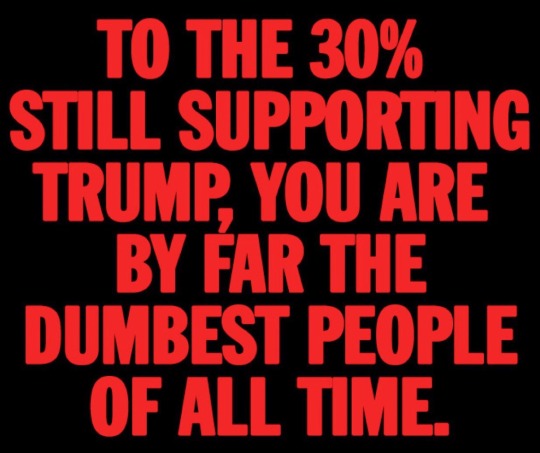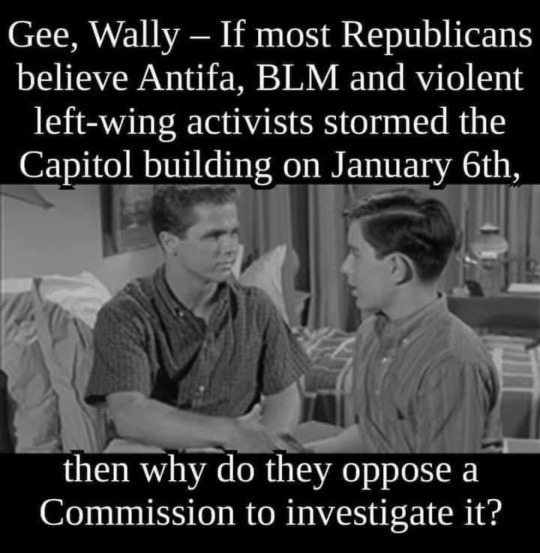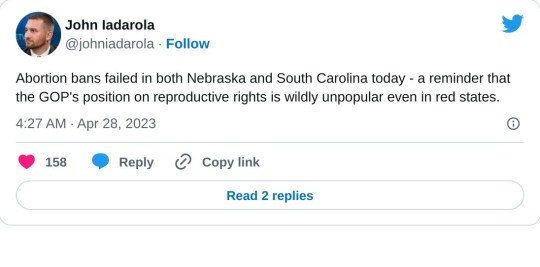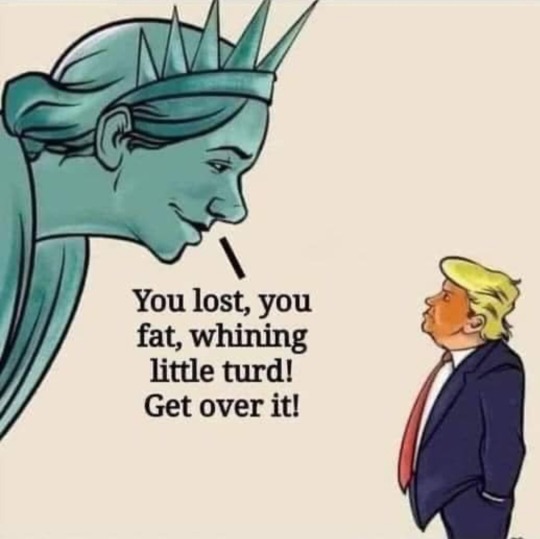#political values
Text

US politics’ post-shame era: how Republicans became the party of hate
10 notes
·
View notes
Text

Every Taylor Swift song
#I truly truly cannot empathize with anyone in limerence with her in fact it feels betraying.#all of the interesting beautiful art in the world and the only thing you can blow up is another implicitly conservative value white woman?#having to write narratives about her hypothetical dykeishness to feel comfortable with that dissonance? as if that would even absolve her#it’s not that I hate Taylor I just hate this unwillingness to engage with where her worldview has serious limitations and it seeps#throughout her discography. I think loving art comes with being able to recognize where it fails#what politics are present in it. it’s not deep it’s not subtext it’s all just right there
11K notes
·
View notes
Text

kras mazov lookin ass
#unironically started understanding disco elysium when i started reading more leftist literature. would recommend#i still think the gameplay is kind of a hard sell for most people but ykw. joyce messier as a concept has been immeasurably valuable to me#everytime i talk to my boss and im confused by her politics i think wow....its just like joyce messier#i don't know how you can claim to have all these socialist values and still uphold the capitalist system for your own comfort...WAIT.....#it's just like joyce messier.........#disco elysium#my art
4K notes
·
View notes
Text
JUDGING LIBERATED FEDERALISM, III
As of the last posting, this blog was highlighting the role that three mental domains have on decision making, i.e., the domains of the real, ideal, and physiological. That view of decision making invites a more nuanced and complex basis by which to analyze that mental process. That is, it is the product of more than immediate perceptions and recognized personal interests, where one engages in considerations that can be and often are quite complex.
For instance, the choice to act in a certain way might not take place immediately before the act is done and, when the time comes, a change of heart might occur. This might be a rare occurrence and it would usually be due to some kind of interference, such as a quick change in the situation, how one sees the situation, or an unexpected physical accident of some kind.
What is important to the assumptions of the liberated federalism construct – what all this concern over decision making is about – is that decisions which result and reflect some ideal domain concern are as important in understanding political behavior as is the decision to act from what people see are the factual elements of a situation.[1] As with many important aspects of life, political considerations usually carry complicating elements.
Affecting people in that sort of situation includes several areas of concern. For example, there has been a growing concern with morality associated with the decisions made by leaders. First, these decisions will be highly influenced by the environment in which people find themselves.[2] The natural rights perspective has a notion that individuals are predisposed to make these decisions based on their own analyses of the issues involved and how they affect the decision maker. As it stands, this is a highly impractical position when the analysis is limited to those factors.
Why? For various reasons including the condition that before people understand the importance of making decisions along the lines of political values or social goals, they are inundated with value and goal messages with which they have grown up – their socialization. These messaging experiences are usually presented by legitimate figures of authority (parents or teachers, for example) and, for the most part, accepted by individuals as “the way things are or should be” and often such “lessons” have staying power.[3]
But beyond that, to think people are going to put in the time and effort to think of all the relevant factors they need to, in order to arrive at a coherent, logical, and usable decisions or, more generally, develop perspectives of politics or of social reality, irrespective of their immediate interests, is truly unrealistic. A lot of the aforementioned messaging is stored in a mostly unconscious level of thinking.
Therefore, if the adult world, as presented by parents and teachers, does not provide a set of ideals and an overall construct of political realities (of sufficient complexity), other sources will do so to some extent. Other sources could possibly include peer groups, in terms of political identification,[4] and mass media.[5] Of course today there is the influence of social media which is often based on misinformation and salacious content.
While these sources would not explicitly provide a construct about politics, they influence how people form their basic beliefs, views of reality, and their ideals that people form or accept concerning governance and politics. That view today, as readily seen on the nightly news reports, would be an anti-intellectual, shallow, and inviable one[6] among significant if not the majority of citizens. It would be a far cry from the federalist republicanism that characterized the beginnings of the nation.[7]
Taking a closer look at the ideal domain and how it influences decisions, it contains those messages and desires in the form of values and goals. They become conscious to people in the form of motivations.[8] One can deduce from the evidence so far presented that individuals are apt to struggle within themselves as to what is the preferred priority among different desires, especially if conditions make certain optional decisions as mutually exclusive and the options represent different or even opposing desires.
Choice might mean delaying, postponing, or canceling the quest for certain desires and delaying or eliminating choices that would offer more utility as judged by individuals, or which means fewer negative consequences as measured by standards established in the ideal domain. Individuals might find real turmoil over deciding between or among challenging desires. If decisions are made separately from pending realities, and there is a lack of urgency in relation to desired outcomes, then the situations allow more reflective thought. As such, “thinking ahead” can be very beneficial.
In less agitated circumstances – say during a classroom discussion – the choices may establish, in high priority areas of concern, more lasting commitments. These commitments might, in turn, formulate or help develop for individuals the elements of an ideology. Choices might reflect coherent ideal systems of values and goals. If these choices are professed strongly by individuals, they, the choices, will be considered seriously in future action decisions. Here, one can consider this opportunity as experienced in schools as one of schools’ main positive effects.
These reflected choices can be affected by the socialization processes mentioned above, that people are exposed to, especially during their early years. These are the years when one is taught the appropriate mores of one’s group. This process is seen as inevitable. The question is what set of values and goals people will be exposed to. And a second concern is what opportunities and encouragements they will receive in later life that prompt them to question these basic teachings, for active and engaged citizens should always be disposed to question their beliefs.
And with that bit of reflection about what goes into decision making, especially those sessions involving decisions relating to governance or politics, that covers what this blogger wished to point out in relation to how federalist ideals and ideas should be treated in civics education. Therefore, so much for decision making (for now); the next posting will review the main source of content for civics education, that being the discipline of political science.
[1] For readers who did not read the last posting, the reference here is that decision making is very likely to be affected by assumptions the decider makes. Those assumptions are readily made due to mental states the decider harbors. To analyze this process, this blog has identified the three domains of thought which potentially come to bear on any decisions made. Those domains are the real, the ideal, and the physiological. For more information, see the last posting, “Judging Liberated Federalism, II.”
[2] Work on this concern for moral leadership has been growing since the early 1990s. See for example “Moral Leadership: Meaning, Characteristics and Examples,” Harappa, November 2, 2021, accessed June 14, 2023, https://harappa.education/harappa-diaries/moral-leadership/#:~:text=Maximize%20Growth-,What%20Is%20Moral%20Leadership%3F,ethical%20system%20and%20moral%20purpose. AND more in terms to the initial scholarship in this concept, Thomas J. Sergiovanni, Moral Leadership: Getting to the Heart of School Improvement (San Francisco, CA: Jossey-Bass Publishers, 1992).
[3] “Influences on Moral Development,” Lumen/Adolescent Psychology (n.d.), accessed June 14, 2023, https://courses.lumenlearning.com/adolescent/chapter/influences-on-moral-development/#:~:text=Moral%20development%20is%20strongly%20influenced,%2C%20emotions%2C%20and%20even%20neurodevelopment. AND C. S. Sunai, “Influence of the Home on Social Studies,” in Handbook of Research on Social Studies Teaching and Learning, edited by James P. Shaver (New York, NY: MacMillan Publishing Company, 1991), 290-299.
[4] Camila F. S. Campos, Shaun Hargreaves Heap, Fernanda Leite Lopez de Leon, “The Political Influence of Peer Groups: Experimental Evidence in the Classroom,” Oxford Economic Papers, 69, 4 (October 2017), accessed June 14, 2023, https://academic.oup.com/oep/article/69/4/963/2737463.
[5] Daniel Bergan, Alan Gerber, Dean Karlan, “Effect of Media on Voting Behavior and Political Opinions in the United States,” Innovations for Poverty Action (n.d.), accessed June 14, 2023, https://poverty-action.org/node/6406/pdf.
[6] “Public Highly Critical of State of Political Discourse in the U.S.” Pew Research Center (June 19, 2019), accessed June 14, 2023, https://www.pewresearch.org/politics/2019/06/19/public-highly-critical-of-state-of-political-discourse-in-the-u-s/.
[7] Gordon S. Wood, The Creation of the American Republic 1776-1787 (New York, NY: W. W. Norton and Company, 1998).
[8] Sergiovanni, Moral Leadership.
#real domain#ideal domain#decision making#governance#politics#political values#political goals#civics education#social studies
0 notes
Text

#republican assholes#maga morons#traitor trump#political humor#crooked donald#republican hypocrisy#republican family values#resist
2K notes
·
View notes
Text
there are no amount of domestic policy gains you can cite that will make people change their mind about voting for biden. it's not like the people refusing to vote for him are too uninformed to understand that biden has provided significantly more domestic protections for LGBT people than trump will, but some people are simply willing to risk their own political standing to avoid legitimizing genocidal regime. i dont think anyone in the world is operating the impression that trump would provide less funding and arms to israel but i also don't think it's a stretch to say that there are huge swathes of center-lib shitfucks who will suddenly change their mind about carpet bombing civilians when it's The Friggen Cheeto Man doing it instead of their favorite blue ghoul.
#post going around my dash from various people that's bothering the shit out of me#its such a fuck you got mine approach to politics#to be clear i am not saying a trump presidency will be better for literally anyone.#but the fact that the administration truly doesn't believe biden's policy on gaza will effect his reelection campaign should prove to you#that this regime does not value human life either no matter how much you'd like that to be the case
527 notes
·
View notes
Text

#republicans#conservatives#us politics#memes#shitpost#conservatives be like#republicans be like#gop policy#gop platform#gop#republican family values#republican homophobia#child marriage#child labor laws#libertarians be like#fuck libertarians#libertarian#libertarians
2K notes
·
View notes
Text

#republican assholes#traitor trump#crooked donald#resist#republican family values#political cartoon#republican hypocrisy#maga morons#Jan 6th insurrection#Trump coup attempt#trumps terrorists#Jan 6th political violence
557 notes
·
View notes
Text

#republican assholes#traitor trump#crooked donald#traitor#republican values#maga morons#resist#never trump#political humor
260 notes
·
View notes
Text
I think more than the message that “Zionism is NOT Judaism” which is true but rings hollow to me I would like to see people embracing the fact that Zionism directly contradicts many Jewish values and that anti-Zionist Jews see their faith as inherently connected to their activism against the ethnic cleansing of Palestinians. I was taught to be anti-Zionist largely by Jewish friends and comrades and I continue to lean on them for guidance and clarity as they bravely stand against the propaganda their institutions foisted on them from the moment they were born. In return I work to fulfill the promise that I will make them feel safe in any place, not just the occupied land they were raised to see as the only home where they would not face anti-Semitism. the fight for a free Palestine and the fight for a world where Jewish people can exist without fear are intrinsically linked and must be pursued together
#it’s just like crazy every time I see an explainer that’s like#‘you might not believe it but actually zionism is not a jewish value’ and I’m like ????? obviously???? but we move 💗#obviously not ignoring Jewish people raised with no attachment to Israel who are often erased in these#conversations just that it is always inspiring to me to know that people taught about ‘a land with a people and a people without a land’ etc#etc can break through that and embrace liberatory politics even when like their campus hillel tries to shut down every palestinian speaker
556 notes
·
View notes
Text

#politics#republicans#donald trump#gop hypocrisy#family values#christian evangelicals#evangelical christians#gop thugs#republican thugs#conservatism#conservatives
329 notes
·
View notes
Text
A Personal Note: Celebrating 4,000 Followers*
Lord Vetinari walked out of the room and back into the main hall, with Vimes trailing behind. "However," he said, "in order to keep the peace, the golem will have to be destroyed."
"No, sir."
"Allow me to repeat my instruction."
"No, sir."
"I'm sure I just gave you an order, Commander. I distinctly felt my lips move."
"No, sir. He's alive, sir."
"He's just made out of clay, Vimes."
"Aren't we all, sir? According to them pamphlets Constable Visit keeps handing out. Anyway, he thinks he's alive, and that's good enough for me."
The Patrician waved a hand towards the stairs and his office full of paper. "Nevertheless, Commander, I've had no less than nine missives from leading religious figures declaring that he is an abomination."
"Yes, sir. I've given that viewpoint a lot of thought, sir, and reached the following conclusion: arseholes to the lot of 'em, sir."
The Patrician's hand covered his mouth for a moment. "Sir Samuel, you are a harsh negotiator. Surely you can give and take?"
"Couldn't say, sir."
Terry Pratchett, Feet of Clay
*A Rare Personal Note: This exchange comes after what may be one of the most famous Discworld moments of all time: the conversation where Vimes and Vetinari first discuss the age old question, "Who watches the Watch?", which becomes one of the central threads of Vimes' character progression. But the end of the conversation, which involves the fate of the newly christened Constable Dorfl, strikes me powerfully today. This marks one of the few times in canon that Vimes explicitly rejects one of Vetinari's commands on moral grounds. It also marks a rare moment when Vimes and Vetinari (who are often complex foils for each other) seem to agree on a fundamental point of morality: that a person must be treated as a person, whatever the cost, even if we do not understand them. On the last day of 2023, this seems more important to me than ever. We 4,000 Pratchett fans who share the quotes that fill this blog likely share very little else: If we met on the street we would not agree about politics, religion, the weather, or the correct storage of Battle Bread. But I think that Sir Terry would perhaps want us to remember that, even when we are at our most opposed, we are all made out of clay -- and that is something worth protecting. Happy New Year, my friends. May we all continue to learn what must be given, and what can never be taken.
#sam vimes#samuel vimes#havelock vetinari#dorfl#visit the infidel with explanatory pamphlets#the watch#feet of clay#discworld#terry pratchett#golems#human nature#humanity#value#human value#being alive#self awareness#power dynamics#politics#agency#negotiation#religion#philosophy#morality#made out of clay#aren't we all#footnotes for followers#tumblr milestone#long quote
302 notes
·
View notes
Text

#cadet bone spurs#republican assholes#traitor trump#crooked donald#draft dodger trump#trump humor#maga morons#political humor#republican family values#resist
1K notes
·
View notes
Text

#us politics#twitter#tweet#tyt#the young turks#john iadarola#abortion#abortion bans#Nebraska#south carolina#republicans#conservatives#gop#gop policy#gop platform#republican family values#2023
3K notes
·
View notes
Text

#republican assholes#maga morons#traitor trump#crooked donald#resist#political humor#political cartoon#republican hypocrisy#republican family values#never trump#election deniers#Jan 6th insurrection#Trump coup
478 notes
·
View notes
Note
Bones, I can only ever support you when you decide to kill off a character. Kill Leafstar! Make it dramatic!!! Poison her!!!!
Wasp says: you want Skyclan to be like the forest4? Alright bet!!
my ggoddddd I had an IDEA
Waspstar receives xeir nine lives the way the Forest Four show xem to, in their new pool, by their new rules. While there, Heartstar assures xem that Juniperclaw has been removed as deputy, will never serve in a position of power again, has gone into exile.
...and Waspstar doesn't respond to that very quickly. Xe has a polite, pungent pause. "Is that the punishment for taking a life? By your code?"
"Our code," Heartstar corrects boldly, in a tone that suggests she sees this as reason and fairness. Our Code-- it protects you too, a gesture of sharing. It makes Waspstar's belly twist. "I've made his punishment VERY severe."
Severe. What a word to describe a vacation.
"He regrets what he's done?"
"Yes, very much."
Waspstar's ear flicks. No. Juniperclaw hasn't even begun to regret what he's done to SkyClan.
"SkyClan will be having a ceremony for Leafstar, to say our goodbyes and welcome in a new era," Xey offer in an even tone, "Spread the word that is is a time of forgiveness. All honored guests may come-- if they want to pay."
Heartstar waits for a beat. Then chuckles incredulously, "Your Clanmew skills could use a brush up. You mean pay their respects, yes? To honor the dead?"
"Oh my, how embarassing," Waspstar smiles back, "I'm so very sorry if I was unclear."
Clear as the sky on a cloudless day. Juniperclaw didn't make it out of that funeral alive. If a true warrior does not need to kill to win their battles, then he was no warrior under the Code at all.
#better bones au#BB!SkyClan#PERHAPS I will... godddd that would have been such a fun send-off for Leafstar#Also. Gib Waspstar.#Also a great way to display the contrast between BB!SkyClan's cultural politeness and ruthlessness#Because the politeness comes up a LOT comedically and in low stakes fun stuff#But it's more difficult and situational to show off their value to end conflict brutally and decisively#They don't do pageantry like Forest Four.#They shoot to kill and are still re-discovering the value in non-deadly ceremonial fights
147 notes
·
View notes